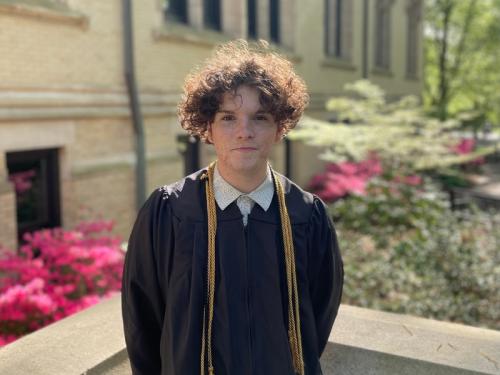
Why did you choose to attend Tulane?
As an anthropologist, the fact that Tulane's SBPS department had a faculty full of fellow social scientists seemed both exciting and comforting. Having focused lots of my previous work and research experiences on the social determinants of health, specifically, was a great match for SBPS' focus on community-oriented solutions that put the social contexts first.
Why are you interested in volunteering as a student ambassador?
Most of all, it seems like a great way to meet fellow students and those working in OSE and admissions. I want to get more involved with the school in ways other than just being a student. and this seems like a really fun opportunity. As I gain more experience here at Tulane, too, I think I'll be a good resource to impart information on new students when they're applying/new to Tulane.
What's your dream job?
While I can't identify a specific "dream" job, I'm interested in getting into public health consultancy. I came into school heavily favoring getting involved in policy, and while that's still the case, I'd love to assist or work in organizations at a smaller, more local level to address health disparities.
What advice would you give someone thinking about getting a degree in public health?
I'd tell them that entering into a public health program can allow you to follow a specified trajectory but also allow you to consider all types of focuses. For example, even though I came to Tulane thinking mostly about policy-related work, it's taken only six weeks for me to start considering community health as a professional option. It's good to be open-minded.
Any hobbies, interests, etc. outside of public health?
I'm probably a little too into soccer, first and foremost. I also love talking music with people, and enjoy reading, cooking, and gardening. My love of plants comes from my experiences working in landscape installations and design.
What is the best thing about being a student at Tulane thus far?
I've enjoyed how some classes truly embrace current, New Orleans-specific issues as ways of learning and applying our course material. It's important that pressing matters that we can help address take priority, and make us more informed people capable of informing others.
Visit my LinkedIn.
